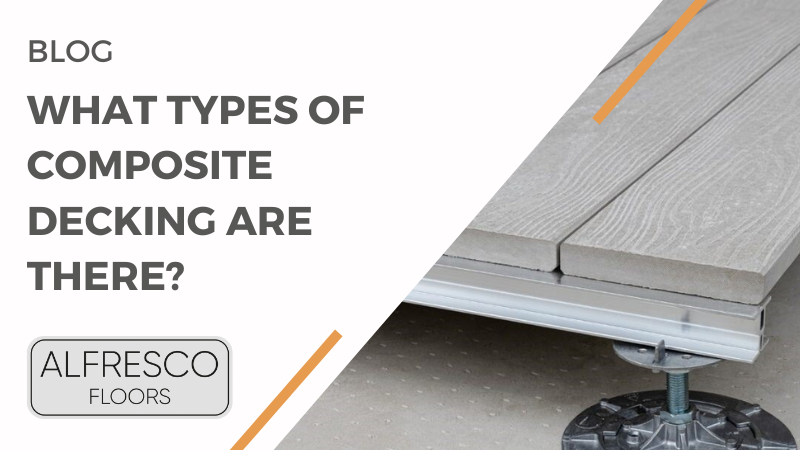
11 Mar What Types of Composite Decking Are There?
Whether you’re looking at technology, cars, or even outdoor balcony decking, the same always applies. You want to get it right.
Making the right choice from the get-go means you can move on to the next project without any concern.
Composite decking is becoming a much more universal choice for architects and specifiers looking for a non-combustible balcony decking option. However, it’s not as simple as selecting composite decking, there are varying levels on the market which could affect your project and its fire rating.
We’re exploring the different types of composite balcony decking and how this makes a difference to your balcony decking.

Why Does Composite Decking Quality Matter?
Because composite decking, as the name would suggest, is made up of a range of different materials or elements, it’s unlikely that two types will be exactly the same.
If you’re looking for a composite that is non-combustible and required for high rise balcony floors, it will need to be made of non-combustible materials. In comparison, composites for a more general purpose, in gardens for instance, will be manufactured using different elements.
This variety means that combustible qualities can vary, so it’s important to know two things before choosing your composite decking.
1: The requirements of your balcony flooring project
2: What elements make up your chosen composite decking.
What Makes Quality Composite Decking?
For your project, we know quality and aesthetic is crucial, but more importantly, you need non-combustible and Class A fire-rated material. If that is what your project demands.
As we’ve touched on, composites come in many different forms and the components used during the manufacturing process has an impact on fire rating.
So, when it comes to selecting a high-quality non-combustible composite decking, you want to make sure there are no plastics in the material. Only through this approach will you be on your way to ensuring a class A fire rating.
The obvious solution is something like ZERODECK, which opts for a mineral composite instead of plastics as part of its construction. This means it not only provides a class-A fire rated flooring option, but a choice that is also splinter-free, slip-resistant and temperature regulating, helping finish your project to the highest possible standards.

Should I Use Plastic Composite Balcony Decking?
If you need to achieve a Class A fire rating, then the simple answer is no.
Although there are many options available on the market manufactured using recycled plastic and wood composites, these are rated Class B meaning they slow down the spread of fire, but don’t prevent it entirely.
When it comes to specifying residential buildings over 18metres in height, it’s Class A or nothing. Choosing a composite decking manufactured from mineral composites like ZERODECK helps you meet these goals.
Just because a composite decking product contains plastic doesn’t mean you should dismiss it, it’s all about understanding your unique requirements and those ratings of your desired product.

Your Composite Decking
It’s not easy to explain every composite possibility. As we’ve discussed, because the elements that are used to manufacture them vary from product to product, supplier to supplier, we have to see the bigger picture.
Essentially it comes down to finding those that can provide a Class-A fire rating for your project and that means plastic free composites.
The easy solution is something like ZERODECK, helping you get that timber aesthetic, a class A fire rating and a durable, splinter free balcony flooring product.
Speak to our team today and explore more possibilities for your composite balcony decking.



Sorry, the comment form is closed at this time.